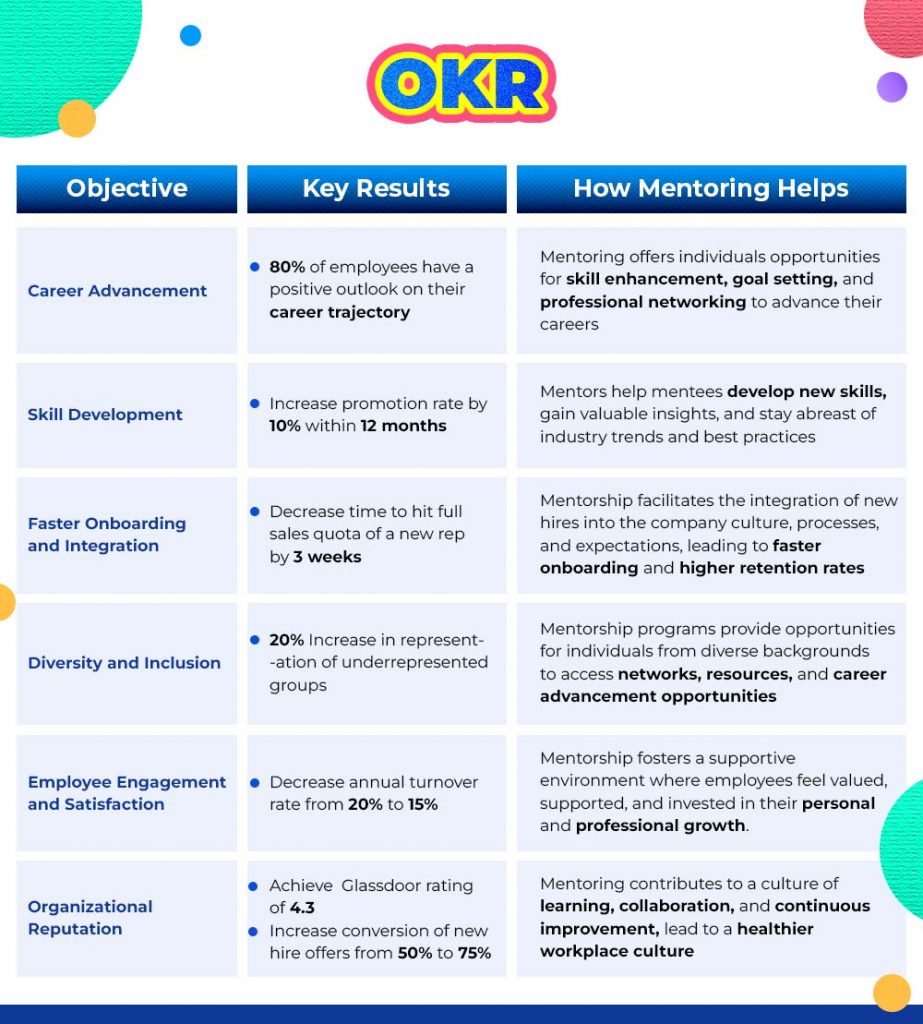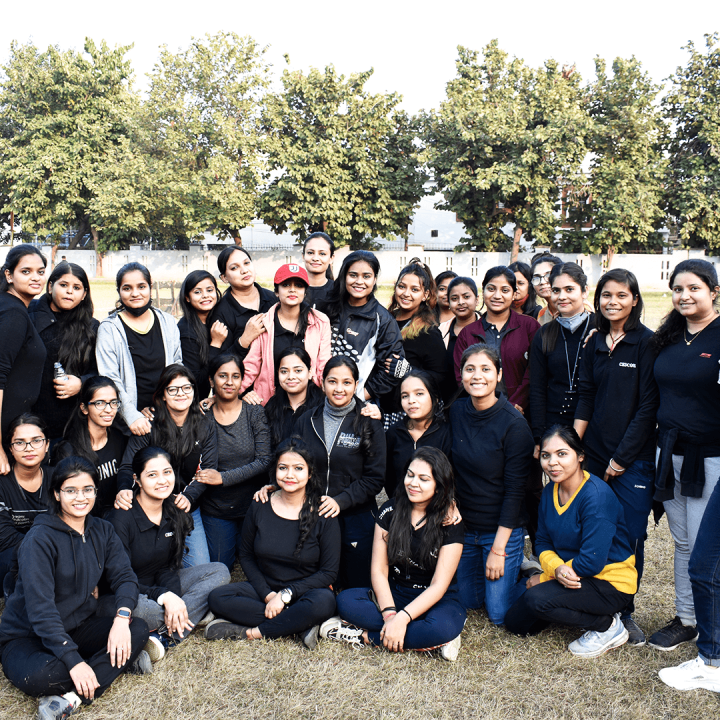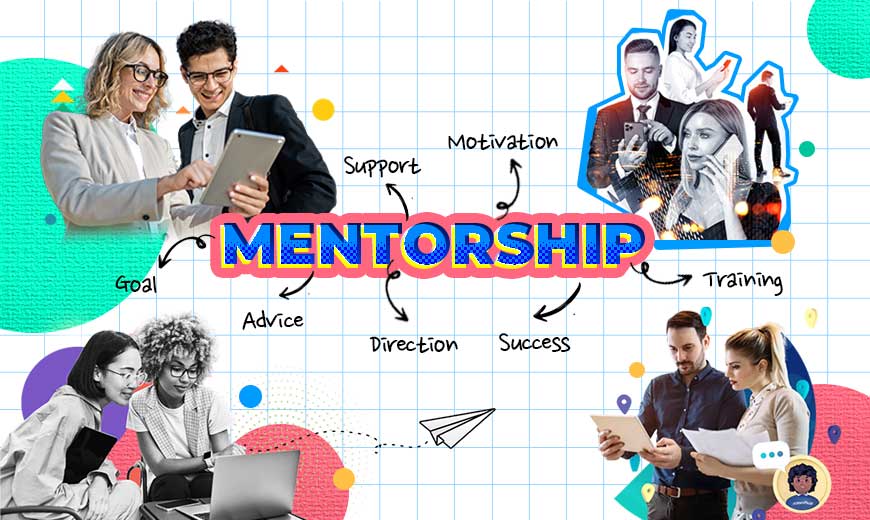Mentorship Momentum: Driving Success in the Modern Workplace
In the fast-paced arena of corporate culture, success isn’t just about climbing the ladder—it’s about finding your tribe, honing your skills, and navigating the complexities of the professional landscape. In this high-stakes game, mentorship emerges as the ultimate power-up, propelling individuals from novice to ninja in record time.
But what exactly is mentorship, and why does it matter?
Picture this: you’re navigating a maze filled with unknown pitfalls and dead-ends. Now, imagine having a seasoned guide by your side, offering wisdom, support, and a flashlight to illuminate the path ahead. That, my friend, is mentorship in action.
Mentorship stands as a cornerstone in nurturing talent, fostering growth, and building robust networks within organizations. At its core, mentorship is a relationship based on trust, mutual respect, and guidance. Experienced mentors offer knowledge, insights, and advice to newer employees seeking to advance their careers. This involves sharing experiences, providing feedback, and being a role model for navigating the corporate world.
Why Mentorship Matters
- Guidance and Wisdom: Mentors bring a wealth of experience and knowledge to the table, offering insights and advice gleaned from their career journeys. This guidance can help mentees navigate challenges, make informed decisions, and avoid common pitfalls.
- Career Development: Mentorship plays a pivotal role in career development by providing opportunities for skill enhancement, goal setting, and professional networking. Mentees can leverage their mentors’ expertise to explore new avenues, pursue growth opportunities, and advance their careers.
- Confidence Boost: Having a mentor who believes in your abilities and champions your success can significantly boost confidence and self-esteem. Mentees feel empowered to take on challenges, embrace new opportunities, and push beyond their comfort zones.
- Networking and Connections: Mentors often have extensive networks within their industry or organization, which can open doors to new connections, collaborations, and career opportunities. Mentees can tap into these networks to expand their reach and forge valuable relationships.
- Personal Development: Mentorship goes beyond professional growth; it also fosters personal development by nurturing traits like resilience, adaptability, and emotional intelligence. Mentees learn valuable life skills and gain a broader perspective on their aspirations and goals.
THE FACTS ARE OVERWHELMING: MENTORING WORKS!
Data and statistics provide compelling evidence of the effectiveness of mentorship in the corporate world. Here are some key findings that support the fact that mentoring works:
- According to a study by the Association for Talent Development (ATD), Formal mentoring programs in organizations offer several benefits such as higher employee engagement and retention (50%), support for high-potential employees (46%), intra-organizational relationships and collaboration (37%), and knowledge management and transfer (37%).
- A Wall Street Journal article outlined that 70 percent of Fortune 500 companies have formal mentorship programs in place.
- Mentees are promoted five times more often than those not in a mentoring program
- 25% of employees who enrolled in a mentoring program had a salary-grade change, compared to only 5% of workers who did not participate (Source)
- According to a CNBC survey on workplace happiness, more than 9 in 10 workers (91%) who have a mentor at work report feeling satisfied with their jobs, including a majority (57%) who feel “very satisfied.”
- Harvard Business Review conducted a study researching the positive effects mentoring can have on the mentors themselves and found that people who served as mentors experienced lower levels of anxiety and described their jobs as more meaningful than those who did not mentor.
- Retention rates were much higher for mentees (72%) and mentors (69%) than for employees who did not participate in the mentoring program (49%). [Wharton]
By investing in mentorship programs and fostering meaningful mentor-mentee relationships, organizations can create a supportive and nurturing environment where individuals can thrive and succeed.
Tips for Finding and Fostering Mentor-Mentee Relationships
- Clarify Your Goals: Before seeking out a mentor, take the time to clarify your goals, aspirations, and areas where you seek guidance. Having a clear understanding of what you hope to achieve will help you identify the right mentor.
- Seek Compatibility: Look for mentors whose values, experiences, and expertise align with your goals and aspirations. A compatible mentor-mentee relationship is built on mutual respect, trust, and shared objectives.
- Be Proactive: Don’t wait for a mentor to come to you; take the initiative to reach out and express your interest in establishing a mentorship relationship. Be respectful of their time and demonstrate genuine enthusiasm for learning from them.
- Build Rapport: Building rapport is essential for fostering a strong mentor-mentee relationship. Take the time to get to know your mentor on a personal level, share your experiences and challenges, and listen actively to their insights and advice.
- Communicate Openly: Effective communication is key to a successful mentorship relationship. Be open and transparent about your goals, expectations, and concerns, and encourage your mentor to do the same. Regular check-ins and feedback sessions can help keep the lines of communication open.
- Show Gratitude: Express gratitude for your mentor’s time, guidance, and support. A simple thank you can go a long way in nurturing a positive and reciprocal relationship.
Build trust and open communication with mentors who align with your values to unlock opportunities and achieve success. So, don’t hesitate to seek out mentorship and invest in your growth and development—it’s a journey worth taking.
Types Of Mentoring
Here are some common types of mentoring, each tailored to meet different needs and preferences.
- Traditional Mentoring: This is the most common type of mentoring, where a more experienced individual (the mentor) provides guidance, advice, and support to a less experienced individual (the mentee). The mentor serves as a role model and provides insights based on their own experiences and expertise.
- Reverse Mentoring: Reverse mentoring flips the traditional mentor-mentee dynamic, with younger or less experienced individuals mentoring senior colleagues. It bridges generational gaps by sharing knowledge in areas such as technology, social media, or current trends.
- Group Mentoring: Group mentoring involves one or more mentors working with a group of mentees. This format allows for broader learning and networking opportunities, as mentees benefit from the collective wisdom and experiences of multiple mentors and peers.
- Virtual Mentoring: With the rise of digital technologies, virtual mentoring has become increasingly popular. Virtual mentoring allows for mentorship to take place remotely, through online platforms, video calls, emails, or chat apps. This mentoring type is ideal for geographically dispersed individuals or work remotely.
- Peer Mentoring: Peer mentoring involves individuals at similar levels or with similar experiences supporting and advising each other. Peer mentors can provide valuable insights, empathy, and encouragement, as they can relate to each other’s challenges and experiences.
- Career Mentoring: Career mentoring focuses specifically on helping individuals navigate their career paths, set goals, and develop the skills and competencies needed to achieve success. Career mentors may guide job search strategies, networking, professional development opportunities, and career advancement.
- Skill-Based Mentoring: Skill-based mentoring focuses on developing specific skills or competencies, such as leadership, communication, or technical skills. Mentors with expertise in a particular skill area provide guidance, feedback, and resources to help mentees improve their proficiency in that skill.
- Cross-Cultural Mentoring: Cross-cultural mentoring involves individuals from different cultural backgrounds supporting each other and learning from each other’s perspectives. This type of mentoring can help foster diversity, inclusion, and cultural understanding within organizations.
The diverse array of mentoring types underscores the adaptability and effectiveness of mentorship in meeting the varied needs of individuals and organizations. From traditional one-on-one relationships to innovative virtual platforms, each type of mentoring offers unique advantages and opportunities for personal and professional growth.
Running A Mentoring Program
For organizations looking to create a mentoring program, leveraging the insights from different types of mentoring can be invaluable.
Here’s a suggested approach:
- Assess Needs and Objectives: Begin by identifying the specific objectives and goals of the mentoring program. Determine what areas of development or support are most critical for your organization and its employees.
- Design Program Structure: Design a program structure that incorporates various types of mentoring based on identified needs. Consider offering options such as traditional one-on-one mentoring, group mentoring sessions, or virtual mentoring platforms to cater to different preferences and circumstances.
- Recruit and Train Mentors: Recruit mentors from within the organization who possess the necessary skills, experience, and willingness to support others. Provide training and resources to mentors to help them effectively fulfill their roles and responsibilities.
- Match Mentors and Mentees: Pair mentors and mentees based on compatibility, goals, and interests using a thoughtful matching process. Consider offering flexibility for individuals to choose their preferred mentoring format, whether it’s traditional, reverse, or group mentoring.
- Implement and Support: Launch the mentoring program with clear communication, guidelines, and support mechanisms in place. Provide ongoing support and resources to mentors and mentees to ensure the success and sustainability of the program.
- Evaluate and Iterate: Continuously evaluate the effectiveness of the mentoring program through feedback, surveys, and key performance indicators. Use insights gained to make adjustments and improvements to the program over time.


By incorporating a variety of mentoring types into the program design, organizations can create a dynamic and inclusive mentoring culture that empowers individuals to thrive, learn, and succeed together. As a result, both mentors and mentees can unlock their full potential, driving growth and innovation within the organization.
In conclusion, mentorship is not just a buzzword in corporate settings; it’s the lifeblood of growth and success. As we’ve explored, the impact of mentorship is profound, from guiding individuals through challenges to fostering a culture of support and inclusion within organizations.
Using data and statistics, we have evidence that mentorship is effective in driving employee engagement, retention, and career advancement practical tips for both finding and fostering mentor-mentee relationships, emphasizing the importance of communication, goal-setting, and gratitude.
Mentorship programs provide a structured framework for organizations to invest in their most valuable asset: their people. These programs have diverse objectives and key results, and by embracing different types of mentoring and adapting to the changing dynamics of the workplace, companies can cultivate a culture of continuous learning and development.
Ultimately, mentorship matters because it transforms individuals and organizations, empowering them to reach new heights of achievement and fulfillment. So, let’s champion mentorship, nurture meaningful connections, and pave the way for a brighter future in the corporate world.







